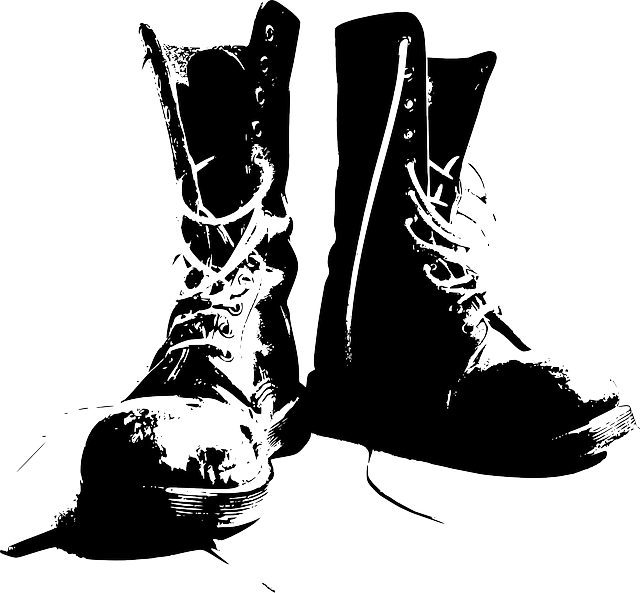
Mental health is messy and complex. Unlike many aspects of our physical health, there are no blood tests that can determine if we have a mental health disorder. Most diagnoses are based solely on what symptoms a client reports.
In a world where mental health issues continue to be a taboo topic, there’s not enough familiarity with mental health disorders for people to know when to seek treatment. Or, if they do seek treatment, clients and providers are not always speaking the same language.
I have been immersed in the world of mental health, both personally and professionally, for so long that it’s hard to remember what “normal” people know. Like many mental health providers, I try to bridge the possible knowledge gap by providing helpful lists of common symptoms.
Lately, I’m questioning how helpful those lists may be.
For the past few years, a large portion of my work has been with Veterans (or soon-to-be Veterans) who have applied for VA Disability Benefits. I evaluate Veterans for possible mental health diagnoses and submit a report to the VA.
My report includes a symptom checklist that is used by the VA to assign the Veteran’s disability rating. Since their disability rating directly affects their monthly compensation, my accuracy on that checklist is important.
So, I ask my Veterans about each of the symptoms on the checklist. I am likely one of the few examiners to do this, though I wish that weren’t the case. It seems unreasonable to expect someone to know what symptoms to bring up and/or to remember to bring those symptoms up during the exam.
In going through that checklist with my Veterans, I have learned an important lesson. Those “helpful” lists of common symptoms may be helpful for some people (or possibly just for other mental health professionals), but those lists are relatively meaningless to Veterans. We are NOT speaking the same language.
Those lists are meaningless to Veterans.
We are NOT speaking the same language.
Do you remember learning what hungry feels like? I do. I remember telling my mom that my stomach hurt, and since it was almost dinner time, she told me that I was probably just hungry.
Every once in a while, I think about that moment. Somehow, I learned the word that described what I felt inside. It boggles my mind to think about. But clearly, we have all had millions of moments like that. Somehow, by the time we’re adults, we all know what it means to feel hungry. Can you even imagine not knowing?
I’ve been dealing with anxiety since about 3rd grade. I don’t remember when I learned that what I was feeling was anxiety. And to me, feeling anxious is no more foreign than feeling hungry. Anxiety is another universal human experience. It never even occurred to me that anxiety is NOT one of those words that we all learned along the way.
It makes sense, though. Of course, we all know hungry. People are very open about feeling hungry. There’s (often) no shame about feeling hungry.
We don’t have that same openness about feeling anxious. If no one is talking about it, how are we supposed to learn what it is?
To me, anxiety is obvious. So I was dumbfounded when my first Veteran asked me for clarification: “What do you mean by anxious? Like, I’m anxious for Christmas morning to come?”
Anxiety is the most frequent symptom that Veterans ask me to explain.
At least half of my Veterans are dealing with near-paralyzing anxiety on a regular basis, yet they would have never thought to describe it as anxiety.
So, how are they supposed to know when or how to ask for mental health treatment?
I’ve learned several symptoms that my Veterans commonly experience without realizing it. I am hoping that I have learned enough from you all to offer you a more helpful list of symptoms…
Signs of Mental Health Issues
for Veterans/Service Members
You get less than 8 hours of sleep at night (give or take).
I ask many of you about sleep, and you say that it’s fine. It rarely is.
Here are signs your sleep isn’t fine:
- You get 4-6 hours of sleep. Sure, you may be one of those people who doesn’t need much sleep – but that would mean that you’re not living on coffee and Red Bulls.
- It’s taking you longer than 20 minutes to fall asleep.
- You can fall asleep fine but wake up most nights at 3am and can’t fall back asleep.
- You’re not going to bed until 3am, because you were up playing video games or watching movies. Is it possible that you are avoiding going to sleep?
- “Passing out” is a more accurate description than “going to sleep.”
You have bad dreams/nightmares more than twice a year.
You may not remember your dreams. That doesn’t mean you’re not having dreams.
- Are you waking up drenched in sweat?
- Does your partner say that you seem distressed in your sleep?
- Does your partner say that it’s dangerous to sleep next to you and/or to wake you up?
If so, there’s a good chance that you’re having nightmares.
You often hear: “I’ve told you this 3 times. How do you not remember?”
The person is probably not gas-lighting you.
You’re probably having problems with your short-term memory.
A lot of you don’t even realize it because you have learned to write everything down.
People frequently “make” you angry.
- You go from being calm to being in a full-on rage in a split second.
(And later get confused/embarrassed about why you were so angry.) - You often believe your anger is completely justified because the other person is so f***ing incompetent.
You are NOT a pleasant dinner date.
- When you go to a restaurant, you will only sit facing the door.
- You know where all the exits are.
- You track anyone who appears suspicious.
- You know which chairs and barstools you will smash over heads, if you need to protect yourself and others.
- You eat quickly. If your date is taking too long to finish a meal, you’ll get increasingly irritated.
No. This isn’t “just part of your training.”
You usually turn down invitations or cancel plans.
This may be for a variety of reasons:
- You don’t have any energy.
- You can’t stand being around people.
- Your stomach feels off.
- You have chronic pain.
- You can’t keep up physically.
- You don’t know who will be there.
- It may be crowded.
- Nothing seems appealing anymore.
You feel lazy because you have no motivation/energy.
I don’t think this needs further explanation, but it does warrant a comment:
When you are dealing with mental health issues, it is a lot of work to get through every day. You may not acknowledge it, but that doesn’t lighten the load that you carry around all day, every day.
You are doing the best you can to survive. Give yourself some grace.
If you experience any of these symptoms for an extended period of time,
it may be helpful to talk to a mental health provider.

“Pull yourself up by your bootstraps”
IS NOT ADVICE.
It’s a reference to the absurd:
to doing something that is impossible.
Access the support that you deserve.
Are you eligible for VA Disability Benefits for a Mental Health Disorder? It’s worth finding out.
Access free resources for mental health treatment, financial assistance, housing, etc.

